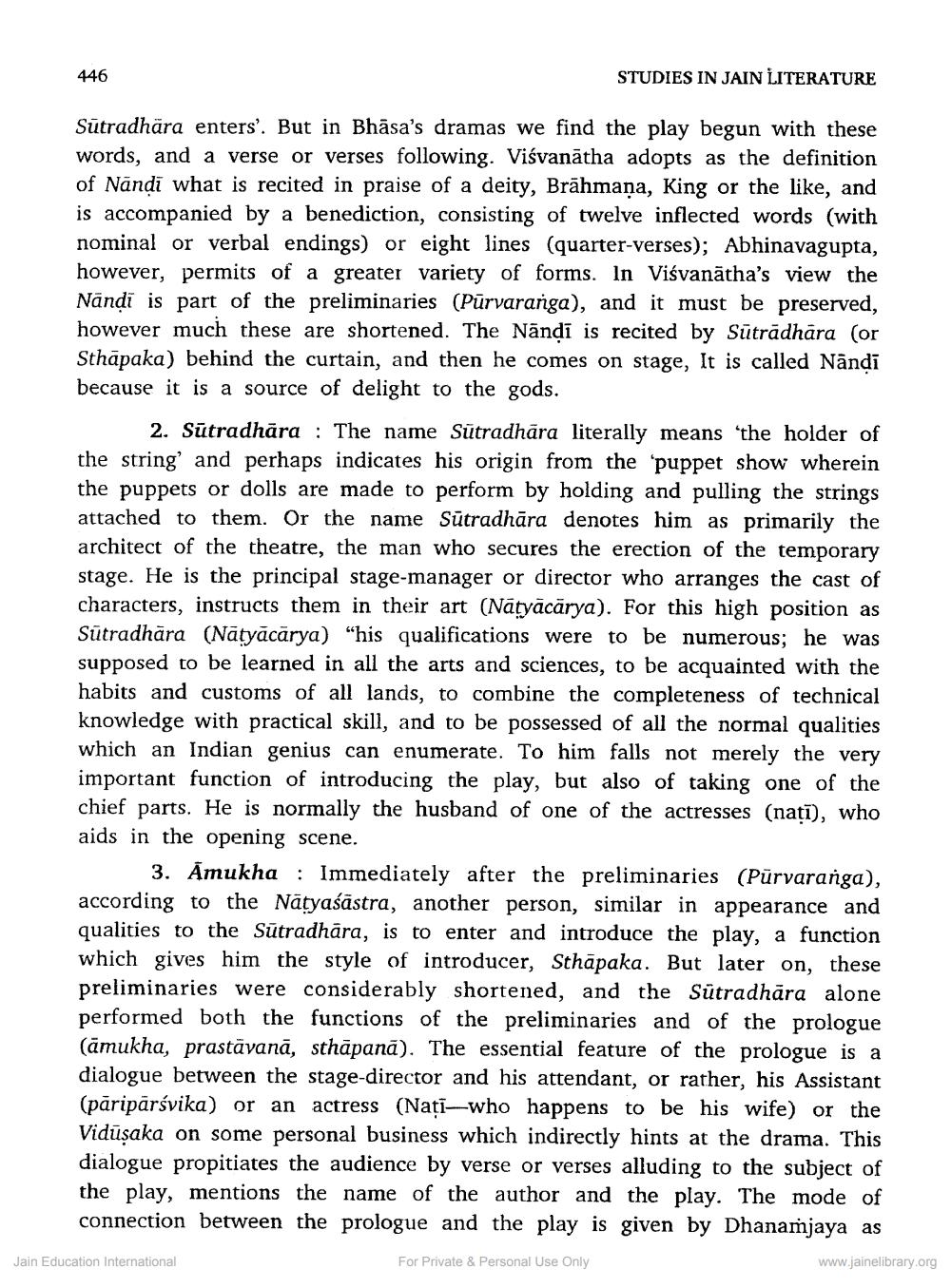________________ 446 STUDIES IN JAIN LITERATURE Sutradhara enters'. But in Bhasa's dramas we find the play begun with these words, and a verse or verses following. Visvanatha adopts as the definition of Nandi what is recited in praise of a deity, Brahmana, King or the like, and is accompanied by a benediction, consisting of twelve inflected words (with nominal or verbal endings) or eight lines (quarter-verses); Abhinavagupta, however, permits of a greater variety of forms. In Visvanatha's view the Nandi is part of the preliminaries (Purvaranga), and it must be preserved, however much these are shortened. The Nandi is recited by Sutradhara (or Sthapaka) behind the curtain, and then he comes on stage, It is called Nandi because it is a source of delight to the gods. 2. Sutradhara : The name Sutradhara literally means "the holder of the string and perhaps indicates his origin from the 'puppet show wherein the puppets or dolls are made to perform by holding and pulling the strings attached to them. Or the name Sutradhara denotes him as primarily the architect of the theatre, the man who secures the erection of the temporary stage. He is the principal stage-manager or director who arranges the cast of characters, instructs them in their art (Natyacarya). For this high position as Sutradhara (Natyacarya) "his qualifications were to be numerous; he was supposed to be learned in all the arts and sciences, to be acquainted with the habits and customs of all lands, to combine the completeness of technical knowledge with practical skill, and to be possessed of all the normal qualities which an Indian genius can enumerate. To him falls not merely the very important function of introducing the play, but also of taking one of the chief parts. He is normally the husband of one of the actresses (nati), who aids in the opening scene. 3. Amukha : Immediately after the preliminaries (Purvaranga), according to the Natyasastra, another person, similar in appearance and qualities to the Sutradhara, is to enter and introduce the play, a function which gives him the style of introducer, Sthapaka. But later on, these preliminaries were considerably shortened, and the Sutradhara alone performed both the functions of the preliminaries and of the prologue (amukha, prastavana, sthapana). The essential feature of the prologue is a dialogue between the stage-director and his attendant, or rather, his Assistant (pariparsvika) or an actress (Nati--who happens to be his wife) or the Vidusaka on some personal business which indirectly hints at the drama. This dialogue propitiates the audience by verse or verses alluding to the subject of the play, mentions the name of the author and the play. The mode of connection between the prologue and the play is given by Dhanamjaya as Jain Education International For Private & Personal Use Only www.jainelibrary.org




